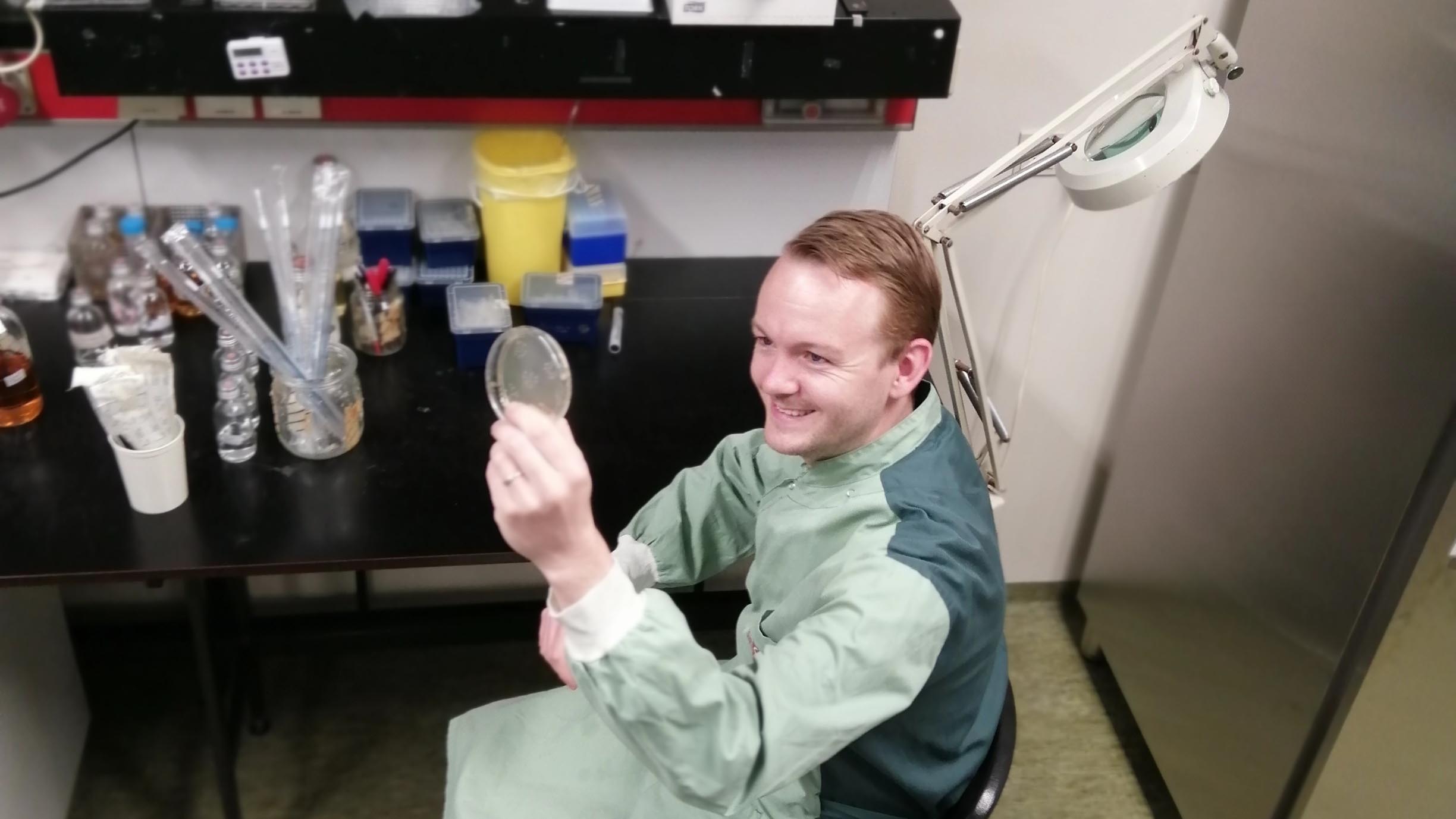
25 Jun AIGHD microbiologist awarded grant for novel approach to antibiotic resistance research
A new approach to studying a common family of bacteria has earned an AIGHD researcher a grant.
Kees van der Ark, microbiologist and Postdoctoral Fellow at AIGHD, was awarded a grant by the British Society for Antimicrobial Chemotherapy to study antibiotic resistance in Streptococcus suis, a bacterium that causes illness in humans and pigs. The study begins in September and will last approximately six months.
Streptococcus suis is a pathogen that can change its DNA sequence in order to survive under various conditions, resulting in several forms of the same bacterium. Researchers suspect that some of these forms become resistant to antibiotics, causing great difficulty in treating humans and animals who get sick.
In Asian countries such as Vietnam, this pathogen is the main cause of Meningitis in adult humans. If the bacterium becomes resistant to antibiotics, it becomes extremely difficult to treat. Most often, the pathogen is transmitted from animals to humans via raw meat or blood that is commonly consumed as part of an Asian diet.
“In the study, I will test the level of antibiotic resistance in each form, and determine which forms of bacteria have developed resistance. This will help us administer better treatments in the future, for example, perhaps providing patients with a higher dose of antibiotics or a different antibiotic,” he explains.
The World Health Organization calls antimicrobial resistance (AMR) an increasingly serious threat to global public health that requires action across all government sectors and society. Without effective antibiotics, the success of major surgery and cancer chemotherapy would be compromised. AMR is also one of our research priorities.
For more information about this study, contact Kees van der Ark: k.vanderark@aighd.org
